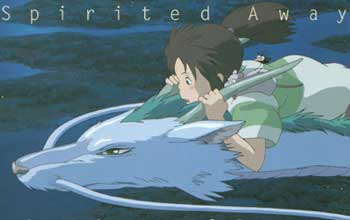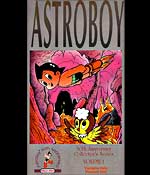
|
Where did the animators come from? Kids coming out of art school. Those were their first animators. Pimply faced kids were the animators and they were learning it from scratch. And all the other studios said, well if Tezuka's doing it we have to do it. First you had to have big eyes because Tezuka has big eyes. We've got to do everything the way Tezuka does. It all began with Tezuka and all the other studios copied him because he had the key to success. Everybody wanted to succeed and the way you succeeded was by doing what the leader was doing. Tezuka was the leader. Now it's so ingrained in the look that nobody thinks about going out there with anything less than big eyes. If anybody draws anything different it draws a lot of attention. FL: Are you familiar with [Hayao] Miyazaki's work? He draws with a more naturalistic approach. He's now known as the Walt Disney of Japan. When Tezuka was alive he was referred to as the Walt Disney of Japan. Now that mantle has passed on to Miyazaki. Everyone will be copying him now.
It's my understanding that NBC tried to return the Astro Boy prints to Mushi Productions when their contract for airing rights expired, but couldn't because Mushi had gone bankrupt after Tezuka left and started Tezuka Productions. FL: That's right. The elements (prints, correspondence, promo-material etc.) were torched. The original deal provided that when the contract expired that all of the elements were to be returned to Mushi Productions. When that happened the studio had already gone into bankruptcy so there was no one there to receive and pay for what would have been thousands of dollars in shipping. There were 104 shows and 15 or 20 copies of each show. If you figure that out it's thousands of cans of prints and negatives, and they're heavy. Plus there were music tracks, sound tracks, publicity material, correspondence; we were to return everything. When we tried to return the stuff the Japanese said we'd love to get all that stuff back but we can't afford it, we're in bankruptcy, we have creditors after us.
NBC wasn't about to pay for it so they called the Fuji Network, which was running the show in Japan, and they said they certainly wouldn't accept the shipping charges. So NBC said, "This stuff is taking up a big corner of our warehouse, we got other shows coming in and we just don't have room for it. We've got to get it out of here." So the Fuji Network finally said, "Just destroy it and issue us a certificate of destruction." So that's what was done and what a great loss that was. The way Right Stuf has been resuscitating the English version is that the guy that founded the whole thing [Shawne P. Kleckner] made a ton of money in the computer business and loved Astro Boy when he was growing up. He resolved to rescue the show. He got on his phone and he called all around the world and he got bootleg prints from here, bootleg prints from there, some prints that had been shown at various places and were forgotten about and never returned, you know. Little by little he collected enough to begin an incredible restoration on as many as 65 shows. They got bits and pieces from all kinds of people and collectors and returned them after they made copies. They could put out more because they've got enough of the elements but they haven't had a demand for them so there's no economic reason to put them out. They say they could get out 103 shows in various shades of quality. Maybe the 104th as well but they're not so sure about that one. Continue to Part III! |
||||||||
|
Betty Boop © King Features Syndicate / Fleischer Studios, Inc.
Spirited Away © Nibariki / TGNDDTM.
Astro Boy © Osamu Tezuka / Mushi Productions.
|


